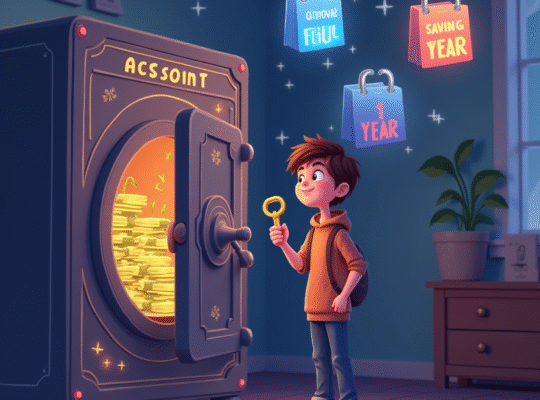A joint bank account is just like a regular bank account — but it’s shared between two or more people. Everyone whose name is on the account can:
- Deposit money
- Spend money
- Withdraw cash
- See the balance
- Track transactions
All users have equal access to the account unless it’s set up differently (which most aren’t).
Think of it like co-owning a wallet — everyone can reach in and take money out or put money in, and everyone sees what’s happening.
Who Uses a Joint Account?
Joint accounts are usually opened by:
- Parents and teens (to teach money skills and monitor spending)
- Married couples (to manage shared expenses like bills or rent)
- Roommates or siblings (sometimes for shared savings goals or household needs)
- Caregivers and aging parents (to help with medical or everyday finances)
Pros (Why People Use Joint Accounts)
1. Easy to Share Money
You don’t have to send money back and forth. Both people can use the same pool of funds for bills, shopping, or saving.
2. Helpful for Teaching Teens
Parents can give a teen access to money but still keep an eye on spending and deposits. It builds trust and responsibility.
3. Saves Time
Instead of juggling two accounts, joint account holders can handle shared payments in one place — super helpful for couples or family members paying for things together.
4. Good for Emergencies
If one person can’t access their individual account (like due to illness or travel), the other can still access shared funds.
Cons (What to Watch Out For)
1. Everyone Has Equal Power
Anyone on the account can spend all the money, even without asking. That means you need a lot of trust between account holders.
2. No Secrets
All account activity is visible to everyone on the account. If you want privacy in your spending, this might not be the best fit.
3. Complicated if There’s Conflict
If a relationship changes — like a breakup, divorce, or disagreement — sharing a bank account can get messy fast.
4. Legal + Credit Risks
If one person overdraws the account or racks up fees, everyone’s name is on the hook. Sometimes leading to credit score decline. Same goes for debts tied to the account.
Things to Look Out For
- Have honest conversations before opening a joint account — agree on what the money is for and how it’ll be used.
- Set spending expectations. Will you both use it daily? Or only for certain bills?
- Keep a small emergency fund separately, just in case things don’t go as planned.
- If it’s a teen-parent account, use it as a teaching tool — not just a free wallet.
Best For
- Parents and teens learning money habits together
- Couples who split expenses
- Families managing shared goals or caregiving
- People who trust each other and want shared access
A joint account can be super useful — but only if you and the other person are truly on the same page. It’s less about just combining money, and more about combining habits, goals, and trust.
If that sounds like you and someone in your life, it might be worth opening one. Just make sure you talk first — because once you share money, you’re also sharing responsibility.





